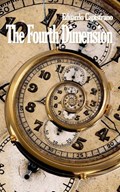The theme for this short story collection by Eduardo Capistrano is Time. Stories inspired by history, set in the past; dystopic visions, dark or well-humored, launched into the future; and narratives about the passage of time, in the contact between generations, in the invocation of memories and in the importance of the briefest of moments.
The tales are ordered chronologically and address the diverse relations of man with Time. The first four are about the past. "Mirrors of the Soul" is a dialogue that exposes the condition of the Renaissance "man of science" and his relation with the average man, not so different as it happens today. In "Opium Kiss" a brazilian on the Victorian Age tells how he let himself be seduced by total moral decadence. "First Lieutenant" follows a military man under an abusive command at the early days of the Brazilian Republic. "Carolina with Glasses" shows the strange visions documented in the diary of a girl with fertile imagination.
The next four tales happen in the present. A boy tries to understand the capacity for stopping time que learned from his father in "Between Seconds". A strange signal seems to be the answer to the monotony of the recluse life of a mathematician in "Greetings From the Future". The title of "Loose Screw" brings the cause to a world coming to its end. "Women and Children First" shows the strength that social conventions have when the cause for a bus accident is revealed.
Six tales occur in the future. "The Electric Apple" follows a lonely programmer of artificial intelligences in emotional conflicts with his creations. "Assured Future" brings a humorous dystopia of a future in which corporations rejoice without limits. "On the Assembly Line" discuss the evolution of technology compared to human morals. "Remote Control" shows the brutal oppression of s society controlled through televisions. "Planet Asphalt" is a world dominated by intelligent automobiles. "The Water of Chroma" is a reflection about the sentimental evolution of humanity.
The collection concludes with "Ouroboros", which discusses the eternal return with the medieval documentation of an interrogatory made with a visitor from afar.

